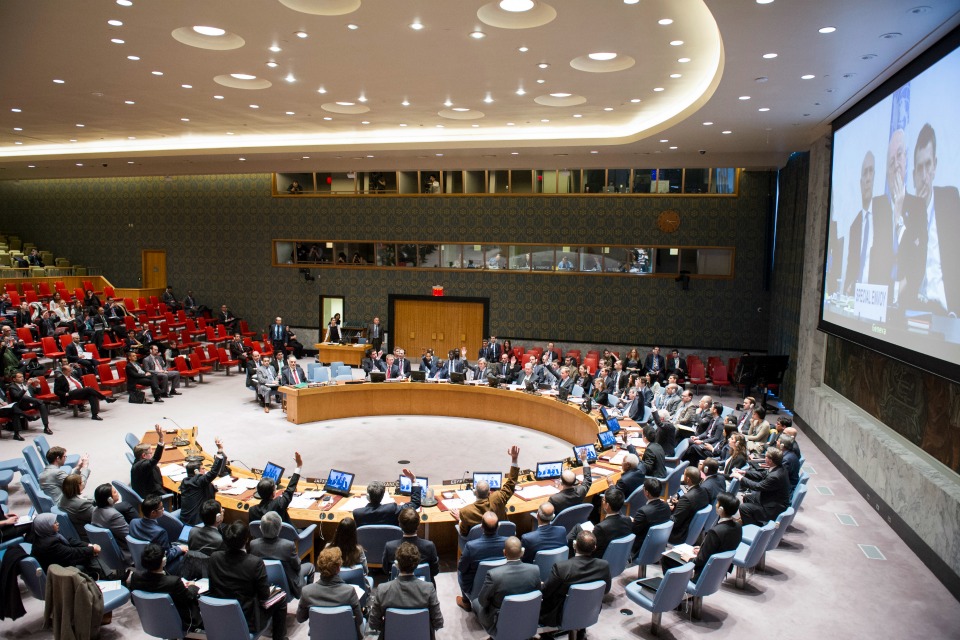"Let us now seize the momentum and see urgent progress towards a political transition away from Asad towards a government that represents all Syrians."
Statement by Ambassador Matthew Rycroft of the UK Mission to the UN following the adoption of UN Security Council Resolution 2268 on the cessation of hostilities in Syria

Thank you Mr President, and thank you Special Envoy de Mistura for your briefing today and all your sterling work in such challenging circumstances.
Mr President,
The United Kingdom welcomes the unanimous adoption of resolution 2268 today endorsing the agreement on a cessation of hostilities in Syria. I want to join others in welcoming the cooperation between the United States and Russia that made this agreement possible.
If implemented fully, this agreement could be the most significant step forward in the past five years; a step that brings us closer to an end to the violence; a step that brings the conclusion of this conflict into sight, and with it, hope for a political transition.
So I welcome Special Envoy de Mistura’s decision to reconvene rapidly political negotiations on transition in Geneva on the 7th of March. It is vital that we seize the impetus created by this agreement. But as set out in the Secretary-General’s report on the implementation of resolution 2254, there are a number of actions still outstanding that need to be taken forward to maximise the prospects for successful negotiations.
First, the Taskforce must agree a transparent monitoring and verification process for the cessation of hostilities and, in the future, for a ceasefire.
Second, additional confidence building measures are still required to show the Regime’s commitment to the political process. These must include the release of arbitrarily detained people, especially women and children.
Third, we need to see a complete end to the obstruction of medical supplies to besieged and hard to reach areas. This practice is completely unacceptable.
As we heard in the briefing from Stephen O’Brien on Wednesday, there has been a significant resumption of humanitarian aid access to besieged areas. And this is welcome. But it is long overdue and it is clear that there remains significant needs, including reaching areas of Eastern Ghouta. We must begin to see that in the coming days.
Mr President,
There is so much more to do. Russia must turn words into actions and use its unique influence on the Asad regime, its affiliated militias and other backers to abide by this agreement. If they do, some much needed confidence will be brought to our hopes for a political settlement. If they don’t, we will falter again and the spiral of violence will continue. We should not forget that 1,380 civilians have been killed and 5,789 injured by Russian and Regime airstrikes since Russia began its campaign in Syria, including attacks on at least three IDP and refugee camps.
So for all our optimism today, we must recognise that the cessation of hostilities is an overdue milestone. But rather than dwell on our past failures, let us now seize the momentum and see urgent progress towards a political transition away from Asad towards a government that represents all Syrians. This is the only way to end the longer term conflict, and in doing so, allow us to defeat the Daesh threat.
Finally, I would like to make clear the United Kingdom’s position that it is the Syrian High Negotiations Committee which must represent the Syrian opposition in formal negotiations in Geneva. The HNC represents a broad sweep of the opposition forces fighting in Syria against the tyranny of Asad. They deserve our whole-hearted support, which regrettably was not reflected in this resolution.
Mr President, It is crucial now that all members of the international community works in good faith to implement this resolution and resolution 2254, alongside the agreements reached in Munich. In doing so, we can ensure that this finally is the year that the bloodshed in Syria comes to an end.